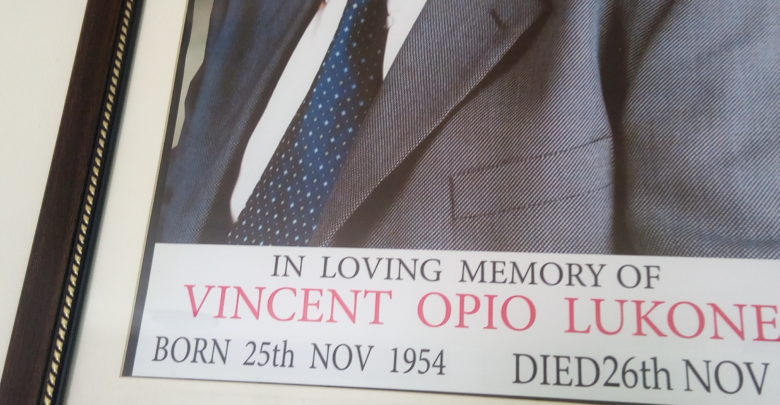
Uncategorized
UGANDA: THE POLICY, PROCEDURES AND PERFORMANCE, PRODUCTIVITY IS A CHALLENGE- OPIO LUKONE MEMORIAL LECTURE.
Despite the many Public sector reform milestones, our performance related indicators are less than glorious.
GULU-UGANDA: Prof. Peter John Opio during memorial lecture for the late Vincent Opio Lukone his speech was honored with standing ovation, the audiences chant because the scholar made their day, according to Oyeng Yeng News eyes witness account.
The verbatim by Prof. PETER John Opio
Mr. Speaker Sir, as a country, we score high on policy designs and implementation matrices. In fact, in the region, we have always been the first to institute reform. Our decentralization policy of 1997 is the first in the region, we were the first to adopt and implement PRSP, we set the pace in fighting HIV/AIDS, just to mention.
Despite the many public sector reform milestones, our ranking on performance related indicators are less than glorious.
Labor force ranks (Value) Uganda ranks No 39 globally at 15.83 million behind our neighbor Kenya (which is No 31) with labor force value of 19.6.
Uganda’s Human Capital Index stand at 0.38, pitting employee productivity at position 135 globally (according to Human Development Report, 2018) at the same report declared Uganda’s employees the most productive in the region in 2016, well ahead of Kenya.
Although these indices do not specifically refer to public sector employees, tardiness among public sector employees take several forms and undermine effective services delivery. Public services is still marked by high level of decadent and mindless bureaucracy, paper publishing and sometimes, debilitating procedure which are deliberately flagged by services provider to frustrate service recipients as well as other public service providers.
In a recent interview conducted to find how public sector employees feel about their work, and what makes them unproductive, a senior employee explained that far from enabling them to accomplish their efficiently and effectively, “Procedures often limits creativity and slow down action and subsequently service delivery.” To elucidate her assertion she explained.
I was once confronted with a case of a pensioner who had suffered stroke and in the process was paralyzed partially but needed to travel to public service Headquarters in Kampala for validation exercise.
As a requirement, she needed an introductory letter from her District of origin to enable her be validated, but at the Local Government level, it is only the Chief Administrative Officer and other high profile manager to sign documents and make some important decisions and yet in this case the relevant officer were not in office.
It was so distressing to see this paralyzed and visibly weak old lady waiting from morning to sunset just to have her letter which I had drafted for her signed and stamped.
Such occurrences wouldn’t have happened is only there were provisions for ermrgncy handling system and or due delegation of duties by the top officers who in most cases appear to be distance, obscure and cautious hance delaying decision making and hence delaying service delivery to the public.
This is a double whammy to public and procedures, but by no means are a lone case junior officers not failsafe either. Some elect to ignore directives from their supervisors whom they consider powerless to enforce policies and procedures because they are connected to higher officers and feel untouchable.
Others elect their own convenient time to execute their tasks, including those that do not demand excessive efforts such undertaking verification of documents.
These and related cold-hearted, foolhardly acts of intransigence and behaviors on the part of public service that, as argues in his well-considered paper, are the heart of a truncated public service in Uganda, and are the heart of eroded public confidence in the civil service.
It also accounts for the despondency among the more conscientious public servants, and crowds out their intrinsic drive to excel.
Once stellar performers realize that after all, no matter what they do, they just can’t make a difference, they too will fall back and just wait for their pay. Ultimately, they public service becomes a haven of lethargic and intransigent deadwoods.
Ends.




